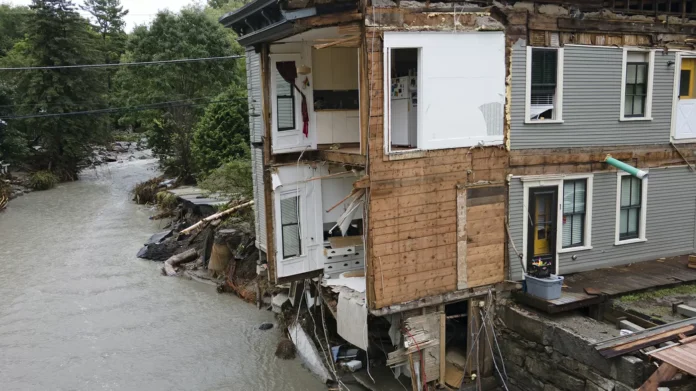Lawmakers in the United States are facing a daunting task as they navigate through partisan divides in order to pass a much-needed bipartisan disaster aid bill by the end of the year. Despite the ongoing political tensions, both Republicans and Democrats seem to agree on the main issue at hand: the urgent need to replenish funds for communities that have been devastated by natural disasters. However, as they work towards a common goal, they are faced with a major disagreement on how to allocate these funds, particularly when it comes to programs for the affected communities.
The recent years have seen an increase in the frequency and intensity of natural disasters across the country. From hurricanes and wildfires to floods and tornadoes, these disasters have caused immense damage to homes, businesses, and infrastructure, leaving many communities struggling to recover. In the face of such challenges, it is heartening to see lawmakers from both sides of the aisle coming together to address this pressing issue.
The proposed disaster aid bill aims to provide much-needed relief for the affected communities, including funds for rebuilding homes, repairing infrastructure, and providing assistance to small businesses that have been impacted by these disasters. However, the major point of contention between the two parties lies in the allocation of funds towards specific programs.
Republicans are pushing for a larger portion of the funds to be allocated towards disaster relief programs that would provide immediate assistance to those affected by natural disasters. They argue that this would help speed up the recovery process and provide much-needed relief to those who have lost everything. On the other hand, Democrats are advocating for a more balanced approach, with a significant portion of the funds being directed towards long-term programs that would help communities become more resilient to future disasters.
Despite these differences, both parties are committed to finding a solution that would benefit the affected communities. In fact, there have been several bipartisan efforts in recent months to reach a compromise and pass the disaster aid bill. For instance, in May, a group of lawmakers from both parties introduced a bill that would provide $19.1 billion in disaster relief funds. However, this bill faced roadblocks in the Senate, with Republicans arguing that it did not do enough to address the immediate needs of those affected by disasters.
In the face of such challenges, there have been renewed efforts to find a middle ground and reach a consensus on the bill. In a recent meeting, House Speaker Nancy Pelosi and Senate Majority Leader Mitch McConnell expressed their commitment to passing a bipartisan disaster aid bill by the end of the year. They also acknowledged the need to find a balance between immediate relief and long-term recovery efforts.
This bipartisan effort has also been supported by President Trump, who has urged lawmakers to put aside their differences and pass the disaster aid bill as soon as possible. In a recent tweet, he stated, “Congress must pass the much-needed Disaster Aid Bill. Lives and homes of our great American citizens depend on it!”
It is heartening to see lawmakers putting aside their political differences and working towards a common goal. The affected communities are in dire need of assistance, and it is crucial for the disaster aid bill to be passed as soon as possible. As we approach the end of the year, it is imperative for lawmakers to put aside their partisan interests and prioritize the needs of the people who have been affected by natural disasters.
In conclusion, the ongoing efforts to pass a bipartisan disaster aid bill are a testament to the resilience and determination of the American people. Despite the political tensions, both Republicans and Democrats have shown a willingness to work together and find a solution that would benefit the affected communities. Let us hope that they can overcome their differences and pass the bill before the end of the year, providing much-needed relief to those who have been impacted by natural disasters.

